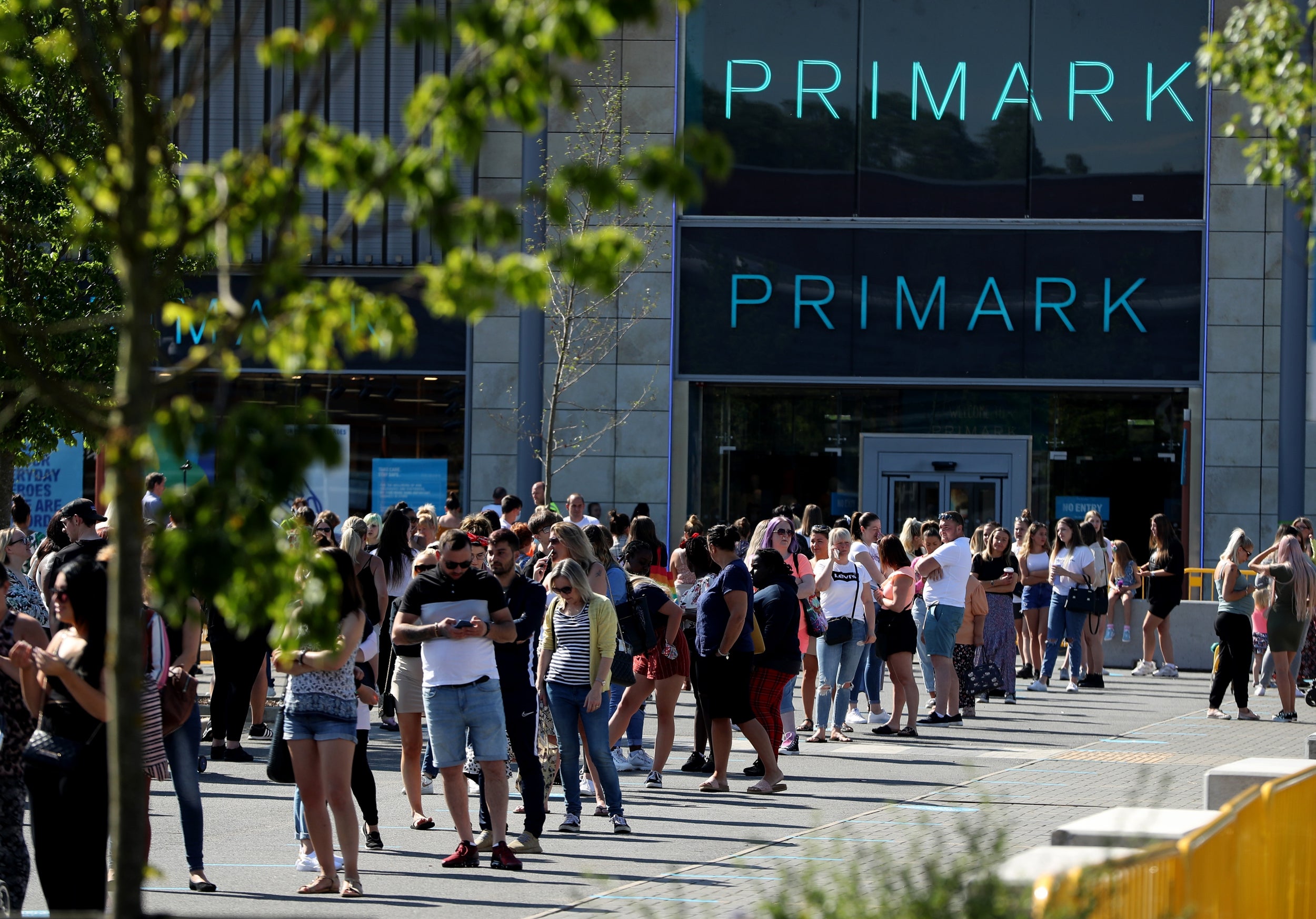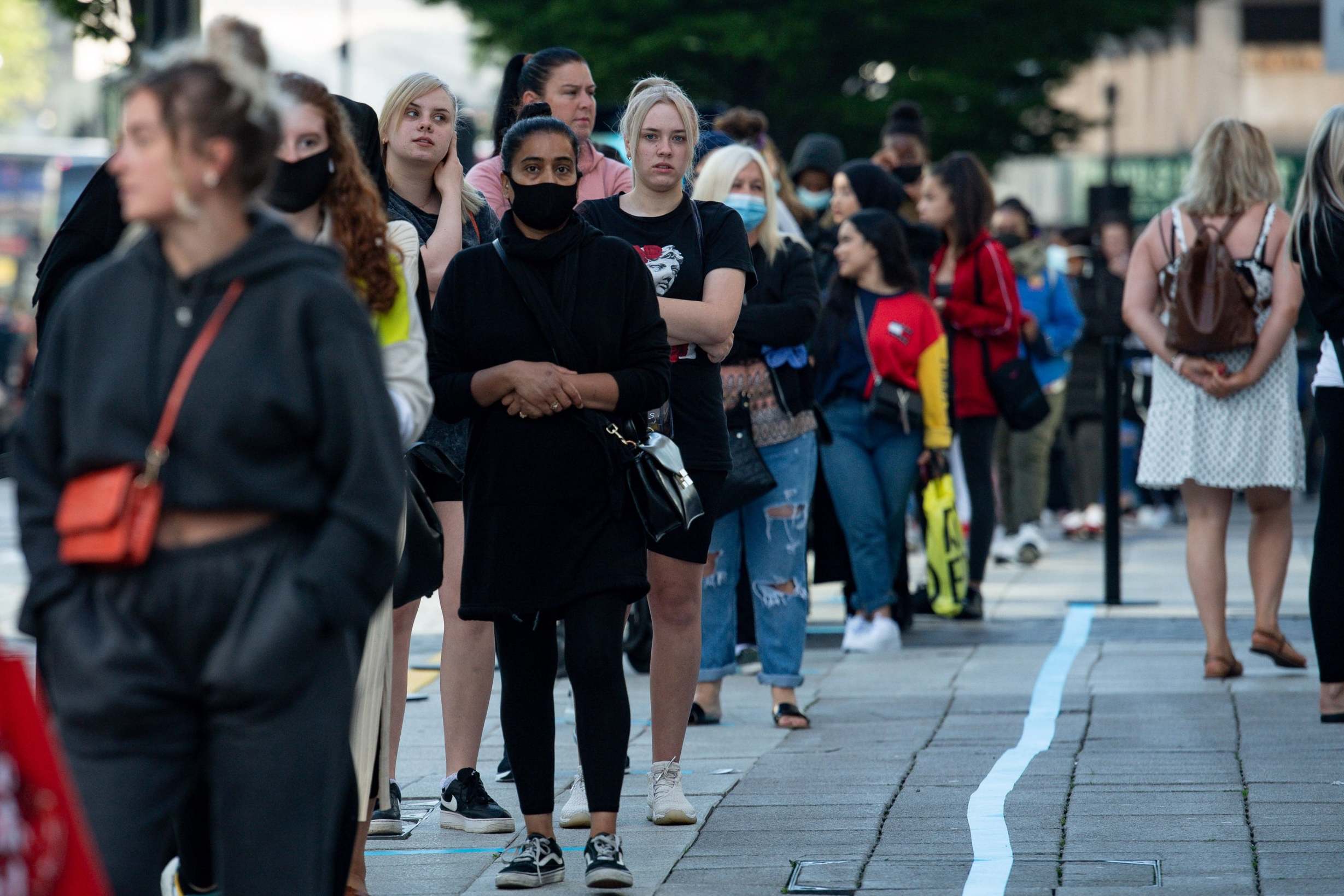Primark puts foot down with new stores despite £800m pandemic hit
For shoppers it’s the crack cocaine of clothes retailing, the fix they can’t do without. And this wildly successful purveyor of fast fashion is gearing up to increase the pace, writes James Moore


The headline says Primark lost £800m as a result of Covid-19 lockdowns across Europe (this is now very much an international business).
That’s net of measures to mitigate losses from stores being closed, by making use of the government’s furlough scheme for example.
While that’s a big number, this is very obviously a business for which the glass is half full.
The first indication that Primark was going to be just fine were the queues outside its English stores on Boris Johnson’s reopening day.
Other retailers trotted out special offers. Your fourth garment free, said M&S. Fifty per cent off for the NHS, said Sports Direct. Primark eschewed such tactics.
“If you open they will come,” said its bosses, who didn’t need any Field of Dreams-style magic to make it happen.
Primark has become the crack cocaine of clothes shops, the socially distanced fix shoppers just couldn’t do with out, the risk they had to take despite the virus that is still making its presence felt.
They’re still taking it.
“Reassuring and encouraging” is how the company described business in its reopened stores. City centre outlets are suffering from reduced traffic, which isn’t terribly surprising given no tourism and the fact that a lot of people are still working at home so aren’t able to browse during their lunch breaks. But retail parks and regional stores have been picking up the slack.
It would be genuinely fascinating to see what proportion of the footfall in the early days of the reopening was down to this business, and how much lower it might have been had Primark stayed closed.
No chance of that. Having picked up where it left off in the middle of March, Primark is intent upon pressing down the throttle. Bombed-out economy? Mass unemployment looming with 12,000 redundancies announced in just two days? Pah. We’re carrying on with our store-opening programme.
And so they should. The depths of a downturn, when everyone else is slashing and burning, is exactly the time to do the opposite if that option is open.

It is to Primark. The retailer is expecting to make as much as £350m on the year, which is a deal more than the City had expected. Even though that’s well below the £900m result it turned in last time, that sort of number is a largely a distant dream for its retail rivals.
Primark doesn’t have an online business to cushion the blow taken through lockdown, but its position as part of Associated British Foods covered for that. That latter’s other businesses brought in £300m to replace some of the cash it was leaking.
ABF is a somewhat unwieldy looking organisation, with an agribusiness tacked on to its barnstorming retailer. Conglomerates aren’t terribly fashionable but ABF’s investors aren’t complaining. To the contrary. The City went wild in the aisles when it came to the shares, marking them up by close to 6 per cent.
They are still down by nearly 20 per cent year to date but they could look absurdly cheap this time next year, and that may be true even if the pandemic takes another bite out of revenues in the meantime, as it may well do.
Downturns inevitably lead consumers to focus on price, and that’s something on which Primark has few rivals. Fast fashion of the type it offers has justifiably caused controversy, given its negative effect on the planet. Like it or not, while some of its rivals fall by the wayside, Primark is only going to get faster.
Join our commenting forum
Join thought-provoking conversations, follow other Independent readers and see their replies
Comments